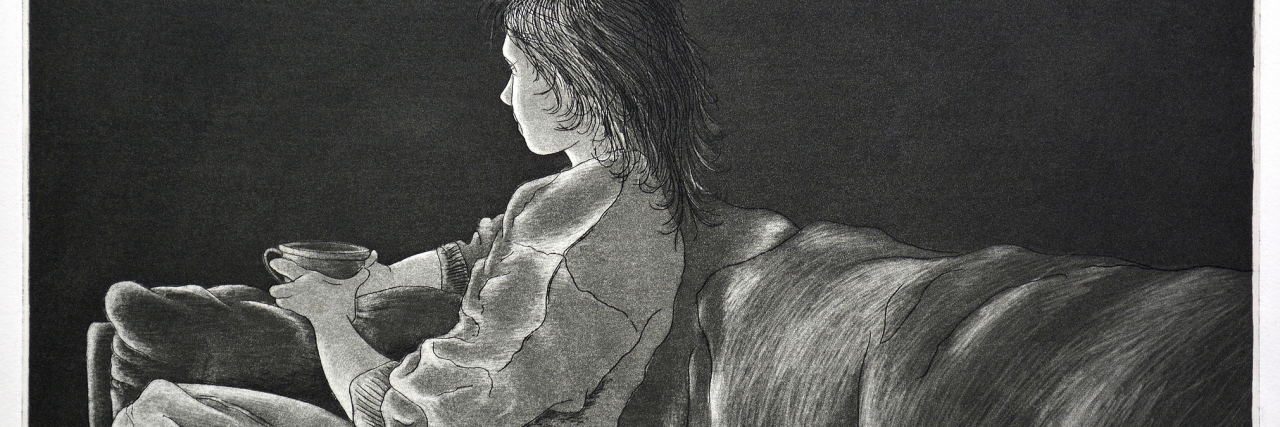As someone who is “high-functioning” with severe mental illness, I often feel trapped between two different worlds.
My mental illnesses make everyday life hard for me.
The stranger symptoms of my mental illnesses, including mania, hallucinations and dissociation, are hard for most people to understand.
Often after I share with someone that I have mental illness, they immediately respond, “Oh, I understand. I was depressed after my dad died.” Or, “I understand. I had a panic attack last year.” Or “I get it. I have anxiety.”
I’m glad they want to express empathy. I appreciate their support. I don’t want to minimize their pain since their struggles are real.
But mild depression and anxiety are different from the type of disorders I have: bipolar I and dissociative identity disorder (DID). My disorders are bizarre and severe. They feel like an integral part of who I am and not just something I’m currently going through.
I used to have manic episodes with hallucinations. These days I dissociate and switch between personalities. My type of mental illness is different. I name it severe mental illness. It is often bizarre.
But despite my struggle, I can still be successful and satisfied in life. I am in graduate school studying counseling. I’m happily married. I have good friends. I have hobbies I enjoy. My life is stable.
Importantly, I am able to hide my mental illness. I can have a panic attack and look calm. I can be manic and just seem excited. I can dissociate and seem normal.
Being able to hide my mental illness means I can function well. People think I am happy and “normal.” Only my husband and friends know I am secretly struggling.
It’s nice that right now things are going well for me. It took me a long time to get healthy.
The struggle is that I feel pulled between the two sides: the person on the outside who is smiling and high-achieving; and the person on the inside who has high anxiety, rapid cycles between depression and hypomania, and fights with her other selves.
I wish I could be congruent. But for right now, it’s not possible. I write for The Mighty under a pen name since it’s not safe to be open about my mental illness in public. At least not right now.
So on the outside, I smile and excel at things. On the inside, I feel lost and confused. On the inside, I have a gritty determination that I will do well in life, despite my inner struggles
In order to be “high-functioning” I have to act like I’m “normal,” but it is profoundly lonely. My friends try to understand, but most of them don’t. It seems rare to be high-functioning and have severe mental illness.
Last summer I was struggling with depression and profound loneliness. I started going to a drop-in program for people with severe mental illness. It was an arts and crafts studio.
You might say that I didn’t “fit” there. Many of the participants lived in group homes for people with severe mental illness. Most were unable to work. I’m an employee and grad student who is high-functioning.
But I found it so refreshing to be there. The staff had mental illnesses and knew how to be supportive of me and everyone else there.
Since I was a child, I’ve felt different than everyone else due to my mental illnesses. Ever since I had my first manic episode 15 years ago, my mental illness has had bizarre qualities and I feel different.
But at the arts and crafts studio, I didn’t feel different or bizarre. I felt safe and accepted for who I was.
Like many people who have experienced trauma, I rarely feel safe. I felt safe at the studio.
I liked that I was able to talk calmly about the other personalities, about my experiences of hallucinations and mania, and it was viewed as normal and acceptable.
I didn’t feel like a bizarre person there. I was normal. I was able to be authentic. I didn’t have to put up walls and be alone within myself.
The problem with going to the studio was that since I’m high-functioning, the staff sometimes treated me like a staff member and a friend. I was even asked to teach a class.
Then I was lectured by a supervisor about appropriate boundaries since I was befriending the staff. Her new boundaries gave me a temporary sense of relief. But after the lecture, the supervisor immediately went back to self-disclosure and talking to me like a friend.
Here was the problem of being high-functioning with severe mental illness. I wasn’t a normal client.
I stopped going to the studio. I couldn’t figure out my place so it didn’t feel safe anymore.
I cried as I drove home. Back to the loneliness of being high-functioning with severe mental illness.
This story originally appeared on PsychCentral.
Getty Images photo via ziggy1

